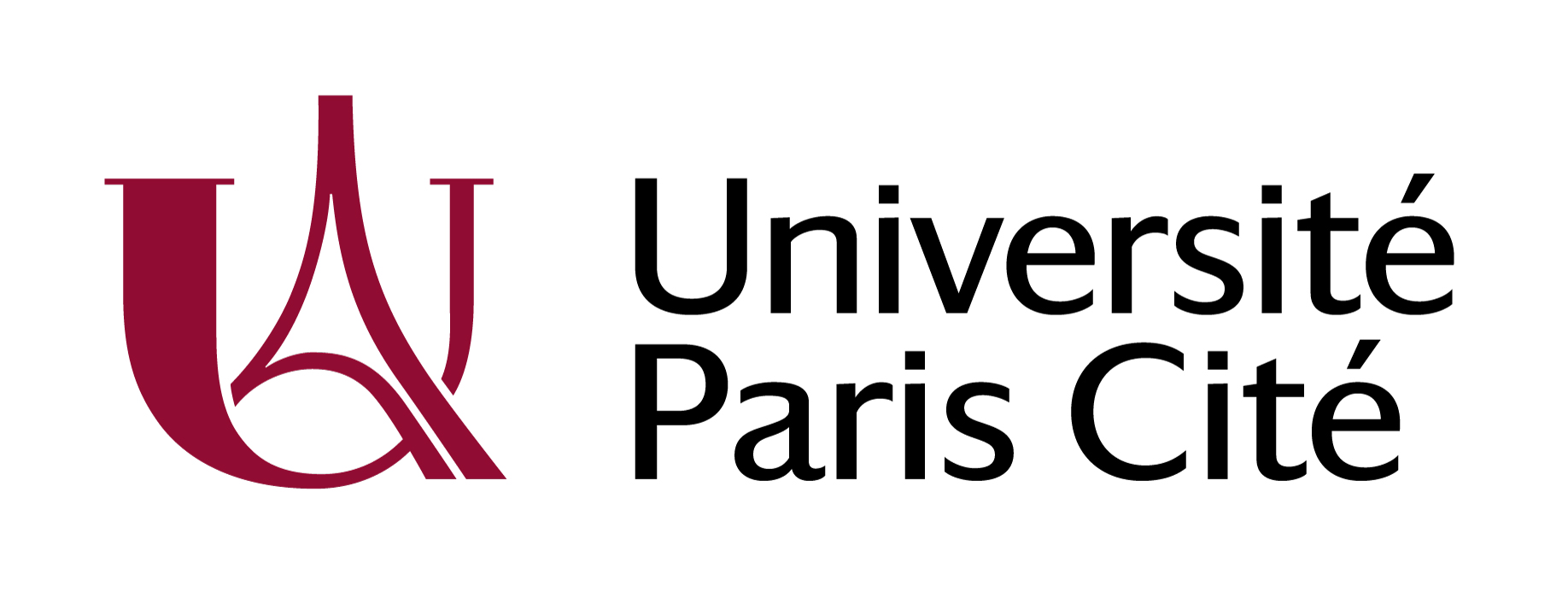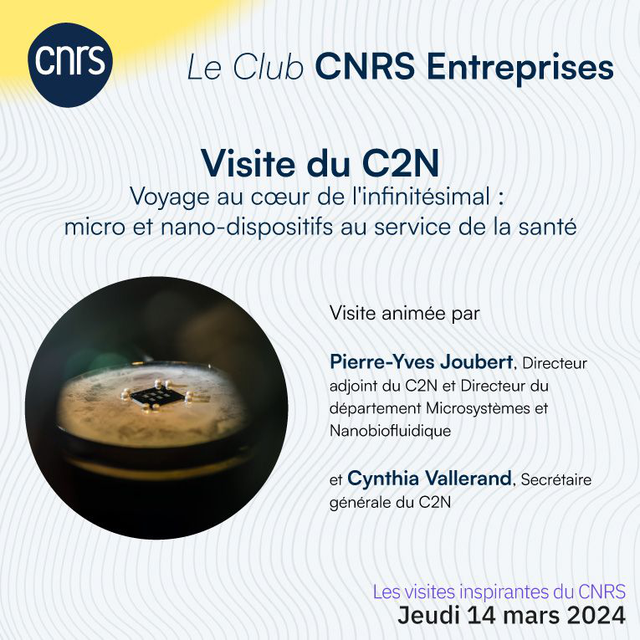This visit, organised with the CNRS Business Relations Department - DRE, will reveal some of the research being carried out in the field of health. It will include visits to laboratories, demonstrations and presentations of projects at various stages of development, from the initial idea to the creation of start-ups, including collaborations with academic and industrial partners:
- The development of microtechnology processes to produce artificial organs for healthcare, including an artificial lung designed to replace the blood oxygenation function, and a biomimetic artificial nasal cavity.
- An in vivo energy recovery microdevice, designed to power leadless cardiac implants using the biomechanical energy generated by the movements associated with the heartbeat.
- The research activities of a joint laboratory between C2N and MISTIC SAS, involving the development of manufacturing processes for titanium-based microsystems for medical implants.
- The development of CMOS circuits in microelectronics for the control of ultrasound actuator networks for the generation of high-intensity focused ultrasound for the therapeutic treatment of cancer.
- High-sensitivity, flexible, portable inductive RF sensors for non-contact characterisation of organic tissue, with applications in low-cost tumour detection, skin wound monitoring and non-invasive continuous blood glucose measurement.
- The development of polymer membranes for the sensor/neuron interface. These polymer membranes act as biocompatible interfaces between electronic sensors and biological neurons, enabling bidirectional transmission of information between electronic devices and the nervous system. This technology opens the way to numerous potential applications, particularly in the fields of neuroprosthesis, neuroscience and regenerative medicine.
- C2N's biotechnology platform, for the synthesis, analysis and implementation of microsystems for healthcare, and its associated bacterial and cell culture laboratories.
- The PIMENT micronanotechnology platform, located in C2N's cleanroom technology centre. Thanks to its cutting-edge equipment and multidisciplinary expertise, the PIMENT platform can be used to produce prototypes and develop new devices in a wide range of fields, including electronics, photonics, sensors and biotechnology.
- Low-cost multiplexed electrochemical microfluidic sensors for the early, targeted detection of markers for chronic diseases such as cancer, which gave rise to the start-up e-miRgency, or for the continuous, personalised monitoring of hormones for applications such as medically assisted reproduction.
- A portable sensor (patch) for the detection of biomarkers (cytokines) present in sweat, using functionalised nanoparticles, for the early, personalised detection of infection or disease.
- A microfluidic lab-on-a-chip for the rapid, low-cost detection of bacteria present in blood, as part of the sepsis detection framework.
Special thanks to Carole Chrétien, Christian Perigaud, Sabrina Biarrotte, Melchior Faure and Clémentine Robert (CNRS Entreprises) as well as Giancarlo Faini, Pierre-Yves Joubert, Cynthia Vallerand, Céline Lashermes and Sandrine Bouvy (C2N) for organising the day, and to all the C2N contributors for their exceptional commitment, who made this visit enriching and instructive through their expertise, their passion for research and their willingness to share their knowledge and discuss future partnership opportunities.
Contacts: pierre-yves.joubert@c2n.upsaclay.fr, valo@c2n.upsaclay.fr
> The latest news from the MicroSystems and NanoBiofluidics Department - Health theme









